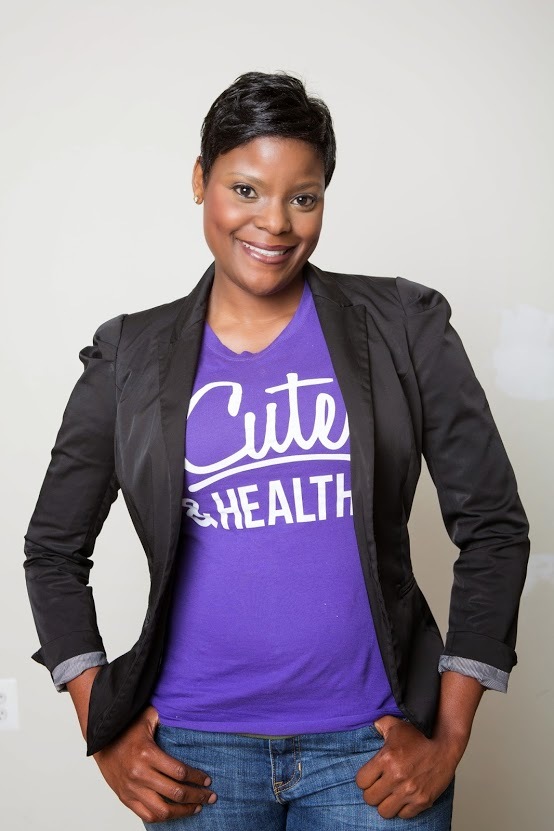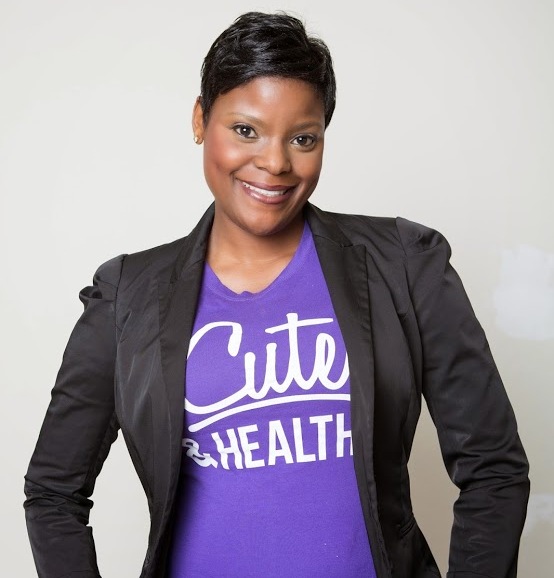[ad_1]
By Charmaine Jones
This piece is a follow up to the Aug. 29, 2018 article, “Do I Have to Eat Like White People,” also by Charmaine Jones.
Last year, on Aug. 29, 2018 I posed a question by way of the Huffington Post. It was, and remains, a question commonly asked of me as a registered dietitian.
“Why do I have to eat like White people?”

Huffington Post staff writer Kristen Aiken then continued the conversation with her article ‘White People Food’ Is Creating an Unattainable Picture of Health. Aiken interviewed Black food and culture experts, Black restaurant owners and advocates, registered dietitians, nutritionists, and a few of my own clients to share their experiences and some historical details on why foods that are considered healthy, are often perceived as foods most commonly eaten at White dinner tables as opposed to those in Black communities.
Her article was also shared far and wide in the health, food and culture communities opening the conversation even further.
The article was also selected as the Editor in Chief’s article of the week, had over 1-million online social engagements and was subsequently nominated for a James Beard Foundation Award, an award highlighting leaders in food culture in our daily lives.
Not only did the articles perform well online, my personal career has also inclined. I have done several radio interviews, been offered job opportunities, and I was even invited to speak at Yale University’s Black Solidarity Conference, providing recommendations on healthy eating and snacking to nearly 500 students of color.
Although I’ve been on a streak of career success since opening the floor for such an important conversation in health and nutrition, the main question, “Do I have to eat like White people?,” and the accompanying article were received with mixed emotions from readers all over the world. Some readers wanted to understand more about why the topic of healthy eating is often associated with White people. Others, already having an understanding of how media biases, and even biases in traditional nutritionist studies, help fuel the idea that what’s done by White people is what is more likely to be accepted as most correct. So, with accepting the positive feedback, I had to muster-up the strength to acknowledge some of the negative feedback, backlash, unfair, and uninformed comments as well.
The article, “Do I Have to Eat Like White People” was based on my experience as a Black, registered dietitian, providing nutrition care and services to urban and low-income Black communities in the United States District of Columbia. I can relate to my clients in their struggles to understand the properties of food, the nutrients different foods provide, and cooking food in the healthiest ways without losing the flavor and nutritional value.
I share the same story of growing up and living in what is considered a low-income, Black community. The nutritional value of food was not emphasized as a core concern in our homes. And, although I do remember posters hanging in our school cafeteria depicting White school kids eating sandwiches on wheat bread, with a red and white carton of whole milk, and side of carrots on their trays, I do not remember the nutritional value of food being a core subject taught in my school. I don’t recall learning about registered dietitians or having one visit my classroom demonstrating healthy snacks at all. I saw meals and snacks just as ingredients pulled together to satisfy me when I got hungry.
Therefore, I have first-hand experience on the lack of proper nutrition education and food disadvantages in Black communities. I draw from these experiences to help me better relate to my clients’ needs so that I can provide the best nutrition education and care.
Having said that, I do realize that there are experiences that do not mirror mine or those of others most common in Black or low-income communities. So I understand it may be difficult to read the words, “Why do I have to eat like White people?” and not take offense. So I’m choosing to revisit the dialogue a year later in order to answer questions I received publicly and privately and to highlight some truths and falsehoods as they relate to food and nutrition inequality in the United States.
Before I begin this dialogue, I want to state that I do not feel like I owe anyone an apology for writing ‘Do I Have to Eat Like White People.’ I am aware that it ruffled quite a few feathers, but I want to affirm that the article speaks to my truth and the truths of those in communities that look like mine. Furthermore, the article was meant to shed light on my professional experiences as a registered dietitian, and help to articulate health issues that plague Black communities and that are often ignored or misunderstood by white healthcare practitioners. I can assure readers that the points in my original article are supported by reliable references. This follow-up piece is simply to answer questions and to re establish that this issue is a pressing issue in this country and should not be taken as frivolous “race baiting” or clickbait.
Now let’s begin the conversation.
Among the thousands of comments I received across the platforms on which the original article was shared, there seemed to be a common thread of confusion or shock at the reference to race as it pertains to food. Some comments were laced with sarcasm, others with anger at the idea that something as seemingly trivial as race would influence our beliefs and behaviors surrounding our food intake. For example, comments like “Food is racist. Well, it was bound to happen sooner or later,” or “I’m trying to decide what to order: White people food or some cultural appropriation food.”
First, race, as it exists in this country, is not trivial. It is an element of American culture that is pervasive and influences many, if not most, of the ways we govern our daily lives. Food intake and health are no different.
For the sake of this article, the two primary racial groups being discussed are Black Americans and White Americans. Historically, there are noticeable differences in the way both racial groups approach food in what they regard as their primary food items, and how they choose to prepare them. Due to the way Black people were introduced to this country via the Transatlantic Slave Trade, during which they were primarily concentrated in the Southern regions of the United States, African American culture is most heavily associated with Southern-style traditional foods. The traditional proteins include: chicken, turkey, pork, catfish, and eggs. The main vegetables items are: beets, broccoli, cabbage, corn, a variety of greens (collards, chard, kale, mustard, turnips), green peas, okra, peppers, squash, sweet potatoes, and tomatoes. Grains include: biscuits, corn, (corn bread, grits, hominy) and rice. Some of the elements that pair with these foods during the preparation processes are: garlic, green peppers, hot-pepper sauce, salt pork or bacon, lemon juice, onion, nuts and seeds, butter and sweeteners.
Some food items that are traditionally recognized as White American foods are things like wild game birds, beef, corn, potatoes, wheat/bread, asparagus, broccoli, Brussels sprouts, cabbage, carrots, cauliflower, celery, chard, cucumbers, eggplant, green beans, green peppers, leeks, lettuce, mushrooms, and beverages like milk, and beer to accompany. These are just a few of the basic items.
I know someone is thinking (as was evident in some of the comments) that Black Americans and White Americans share some of the same traditional food groups. Or at least that you’ve seen both groups eat and enjoy foods traditional to one another’s cultures. So what’s the big deal? Why is it important to differentiate between traditional food items in order to talk about food consumption and health?
Well, that is the big deal. Of course it’s not racist for anyone to eat foods traditionally associated with any racial group. However, there is an assumption that Black people’s health is strictly a result of poor eating choices that tie into the food in their culture. That, as I have attempted to outline throughout this article and the previous article, is not entirely accurate and is biased.
As previously stated earlier in this article, there are many factors that contribute to the general health of Black Americans and any other racial groups. Our health is not limited to food intake. Also, what are often perceived as choices, are not necessarily choices, rather they are representative of a culture of people creating a culture of cuisine with items that are available and affordable to them based on location, and socioeconomic status.
The foods themselves are not always inherently unhealthy. Even in the preparation of the meals, with emphasis on the flavors we recognize as Southern, the foods do not necessarily have to lose all of their health value in order to be enjoyable.
My mission with these articles and with my daily work as a dietitian is to emphasize these truths so that more people recognize that foods we see as traditionally White American cuisine do not have to be the standard of health, as they are often portrayed. We do not have to completely do away with Black American traditional foods in order to eat healthier.
So, to answer two of the most pressing questions:
- No. Food itself is not racist. But when discussing nutrition and making recommendations for healthier eating, we must take into account, and respect, cultural differences with regards to food access, and be careful not to disregard cultural cuisine. We don’t have to! We have to be creative and find ways to enjoy our cultural dishes in healthier ways.
- You do not have to eat like White people, or any other racial group, in order to be healthy. You can enjoy your traditional cuisine AND a healthier lifestyle.
For more content related to nutrition and dietary needs, or to schedule a consultation and book services, visit www.foodjonezi.com
The opinions on this page are those of the writers and not necessarily those of the AFRO.
Send letters to The Afro-American • 1531 S. Edgewood St. Baltimore, MD 21227 or fax to 1-877-570-9297 or e-mail to [email protected]
[ad_2]
Source link


